The Royal Navy has demonstrated new autonomous and uncrewed technologies designed to enhance its digital and information warfare capabilities, according to the service.
Exercise Trident Sprint 1, held at RMB Chivenor in Devon, brought together Royal Navy personnel, defence specialists and industry partners for a two-week trial of uncrewed vessels, drones and digital command systems.
The event is described as the first in a planned series intended to accelerate the Navy’s adoption of digital systems and artificial intelligence as part of its Hybrid Warfighting Readiness goals under RN2029.
During the demonstration, uncrewed surface vessels (USVs) such as the Vandal and Kraken Scout were remotely piloted from more than 150 miles away. Kraken, operating off Portsmouth, was controlled from Chivenor and integrated into a wider digital network within two days, while Vandal was remotely operated in Welsh waters. The trials confirmed the potential of these systems for logistics, survey, strike and search and rescue roles.
Commodore Jason Strutt of Navy Digital said in a news update that the event represented more than a test of new platforms. “It is not about technology alone. We are embracing a shift toward multi-disciplinary collaboration bringing together diverse expertise to strengthen our digital foundations and unlock greater agility, resilience, adaptability, and scalability across operations,” he stated.
Second Sea Lord Admiral Paul Beattie visited the site and described the trial as a milestone in accelerating the Navy’s digital integration. “This event marks the launch of a series of timebound work packages designed to accelerate delivery through scalable infrastructure and common architecture, enabling us to move at pace—at the speed of software,” he said. “This is about being collaborative by default, bringing digital problems from all areas of the Royal Navy closer to the potential solution.”
Alongside autonomous platforms, the Royal Navy tested its tactical communications under “Strike Net”, integrating multiple systems to ensure continued operation in Disrupted, Degraded, Intermittent and Low-bandwidth (DDIL) environments without relying on satellite links. A new “On The Man” anti-UAV system was also evaluated for protecting maritime and land-based assets.
Mal Crease, founder and chief executive of Kraken Technology Group, which supplied the Kraken Scout, said the company was “honoured to show its flagship autonomous maritime platform to the Second Sea Lord”, adding that Kraken was “mission ready today and looks forward to helping enable the Royal Navy’s vision of making operations uncrewed wherever possible.”


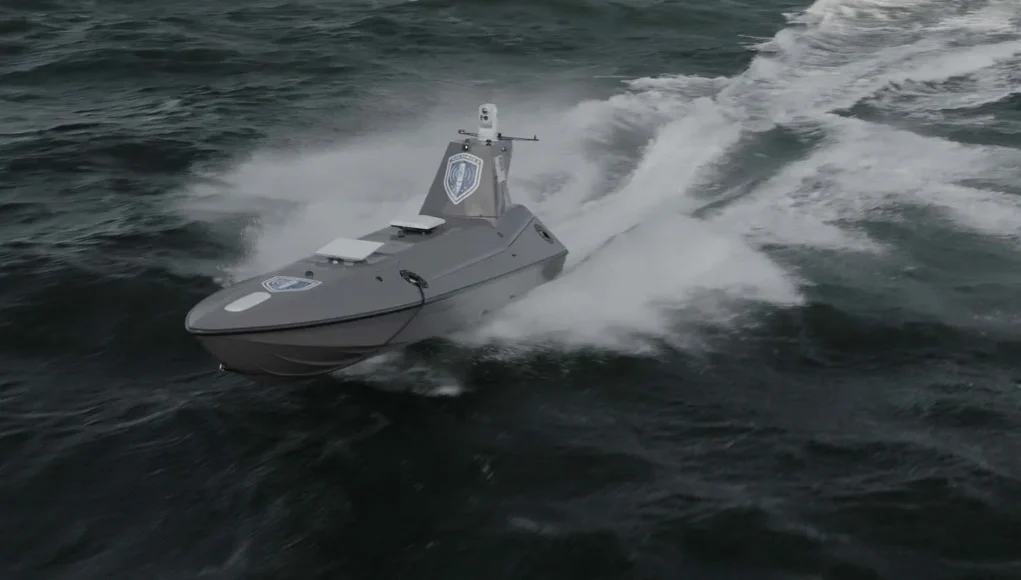
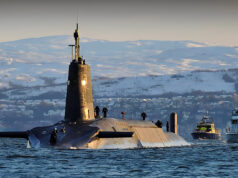
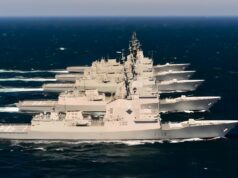

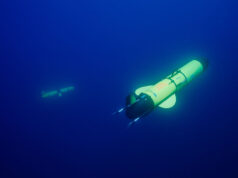
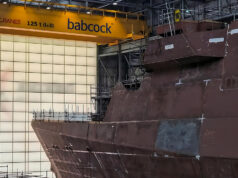

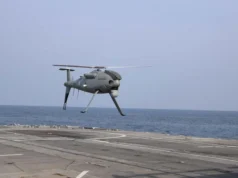
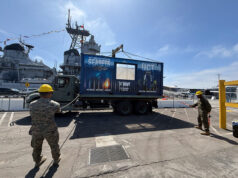
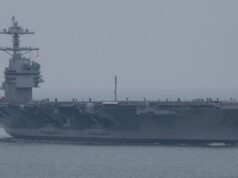
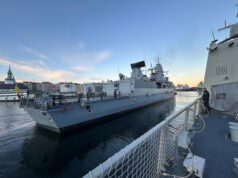

Damn it. Buy the K5 Kraken.
So “at pace” they don’t appear to be ordering anything, unless some stuff is secret.
I think the at pace relates to thinking about stuff, not doing stuff…..
Wonderful stuff! That’s all we need!
Meanwhile, another 2 Sqn standards were laid up yesterday, 33 and 230, so the Puma force.
“At Pace, no one can hear us scream”
(Alien)
Small point, but none of this works without some form of CEC across all platforms.
It’s ok having all these sensors but not if the combat ships can’t actually action the intel.
To my knowledge no RN ship currently has CEC. Unless something has happened that I have missed
BAE Systems are apparently developing a networking sub-system for their latest Combat Management System which is supposed to be a plug and play modular system. Not sure about Thales’ TACTICOS system as used on the T31’s but that is already a modular expandable system from what I have read. I would be surprised if Thales did not have something available or on the way to integrate networked autonomous systems.
Cheers CR
Fine but CEC is the NATO standard isn’t it and none of our assets currently have the hardware apart from F35s I believe
Additionally we should be moving from Link16 to MADL or similar, to jump a generation
CEC is a specific American system. The data and communications standards for interfacing may well conform to those of CEC, but the systems themselves could be very different.
Are there any plans for the fleet to get that capability, it should be #1 priority given stated aim of having all these USVs, strike ships and tenders etc…
What is the vandal usv?